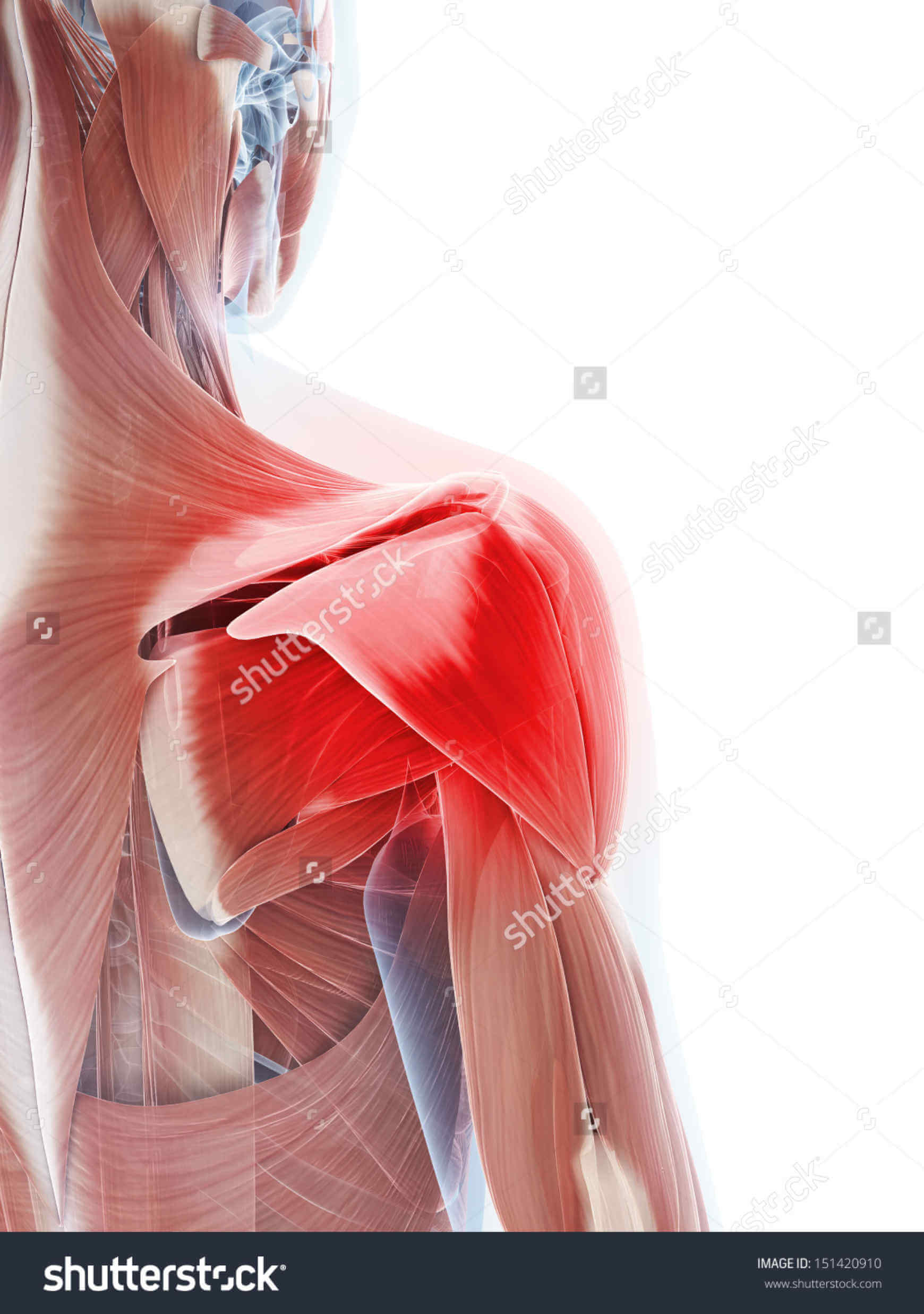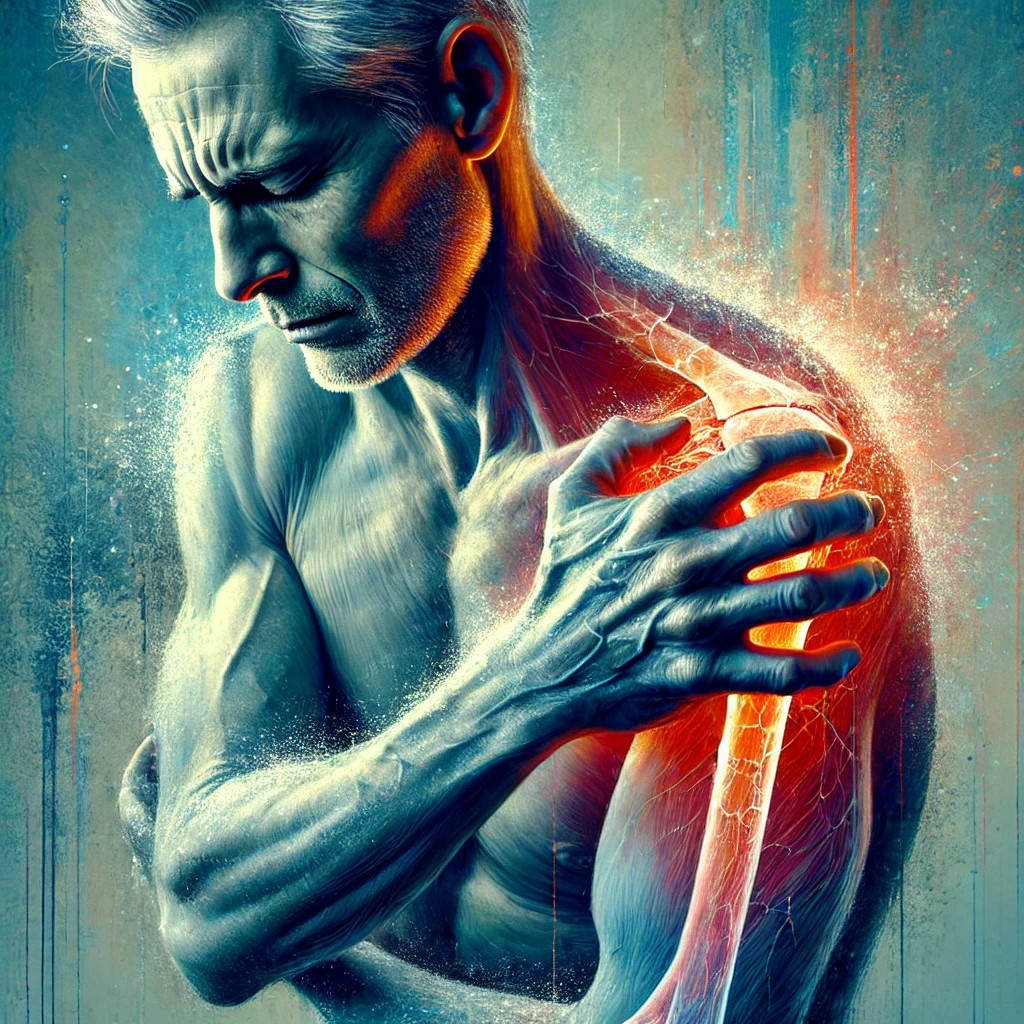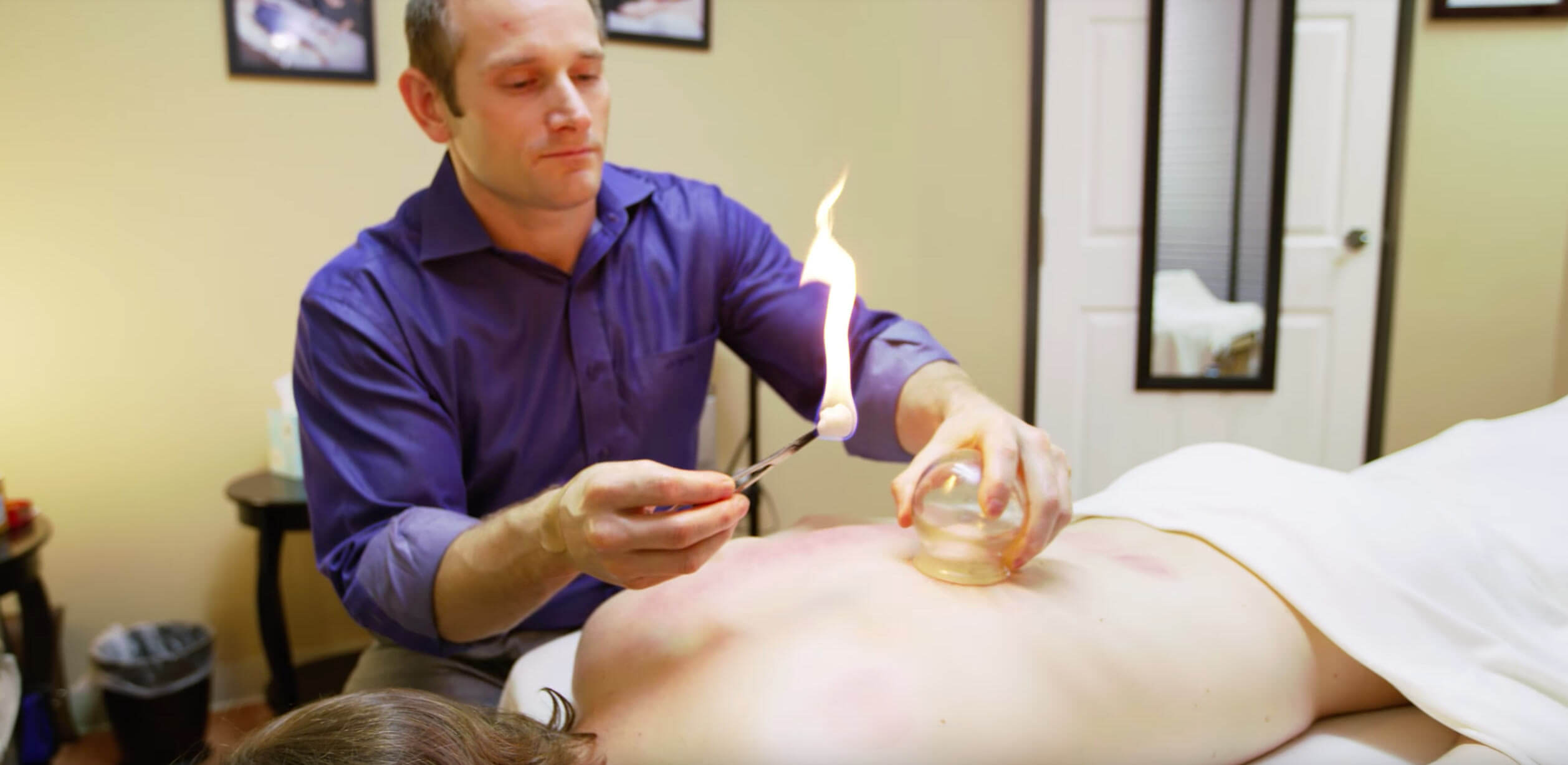How Dry Needling Can Help with Frozen Shoulder (Adhesive Capsulitis): A Science-Backed Approach to Pain…

Frozen Shoulder (Adhesive Capsulitis) Pain: Treatment options with Acupuncture and Chinese Herbal Medicine.
Frozen shoulder pain is one of the most common conditions treated in my clinic. The typical patient who seeks treatment is often between the ages of 40 and 65; more common in women than men; and is especially perimenopausal women or in patients with endocrine disorders, such as diabetes mellitus or thyroid disease.
The key symptoms for diagnosis include:
- Very painful shoulder triggered by minimal or no trauma.
- Pain disproportional to movement.
- Especially painful when externally rotation the elbow by the side of the trunk
- Alternation of stiffness and freezing periods of pain.
Generally speaking, there are three phases to a frozen shoulder pathology: the inflammatory phase (4-6 months duration), the freezing phase (4-6 months duration) and the thawing phase (up to a year or more).1 2 3 The total time for idiopathic frozen shoulder, in the absence of other complications, is 24 months. However, patients with shoulder trauma, or active endocrinopathy conditions can last much longer.
From the perspective of Chinese Medicine, Dr. Subhuti Dharmananda, Ph.D., Director, Institute for Traditional Medicine in Portland, Oregon has the following commentary on Frozen Shoulder treatments (excerpt):
“COMMENTARY ON ACUPUNCTURE THERAPY
As is often noted for treatment of acupuncture therapy, the methods used for frozen shoulder involves diverse ideas about selection of points. There are two main strategies: involving either local or distal treatments. Many of the local points chosen are ones at the shoulder and then some others on the affected meridian (mainly small intestine and large intestine meridians) along the arms and hands. Distal points may be used instead (as in the case of several below the knee points, and also for scalp acupuncture). In some cases, contralateral treatment is relied upon; other times, both local and distal points are on the affected side. Less often, both local and distal points are used. In terms of the points most frequently selected, the local points jianyu (LI-15), bianao (LI-14), and quchi (LI-11) of the large intestine meridian and jianzhen (SI-9), bingfeng (SI-12), and houxi (SI-3) of the small intestine meridian are emphasized. The commonly used distal points are yanglingquan (GB-34) and tiaokou (ST-38) plus several extra points between or to either side of these points were each mentioned. Acupuncture therapy was supplemented by massage and/or the patient’s own exercises in virtually every case. Sometimes physician-managed manipulations would be used.
HERB THERAPY
Pain in the upper body is often deemed a disorder related to invasion of wind, and a condition with stiffness is often associated with coldness, so frozen shoulder fits the ancient category of wind-cold invasion. Modern thinking on the subject of persisting pain at a fixed site suggests that blood stasis may also be involved.
A typical traditional formula considered suitable for “50-years shoulder” is Juanbi Tang, which has the wind dispelling herbs chiang-huo and siler and the blood vitalizing herbs turmeric, tang-kuei, and peony. These herbs are used in a base of tonification therapy that is suited especially to those who are elderly and suffer from a disorder in which there is easy invasion of wind and development of stagnation due to qi and blood deficiency. Hence, in addition to the blood nourishing herbs tang-kuei and peony, the qi tonic and center strengthening combination of astragalus, fresh ginger, jujube, and licorice is included.
An herbal preparation described as a successful remedy for frozen shoulder has the following main herbs: chiang-huo, siler, tu-huo, cinnamon twig, chin-chiu, vitex, cnidium, millettia, and salvia. Here, cnidium, millettia, and salvia serve to vitalize blood and nourish blood, while the other herbs dispel wind and warm the meridians.”
Acupuncture and herbal therapy is an excellent choice for the patient who wishes to make significant progress in the treatment of frozen shoulder and, hopefully, avoid future surgical procedures.
ABOUT THE AUTHOR:
Nathan J. Heide, M.S., L.Ac.
Mr. Heide is founder and President of Anjuna Medicine, LLC in Eugene, Oregon. Anjuna Medicine (www.AnjunaMedicine.com) is a private practice, focusing on integrative pain management solutions for chronic and recalcitrant diseases by using traditional East-Asian medical techniques. Mr. Heide is a graduate of Pacific College of Oriental Medicine (San Diego) and a current doctoral fellow at Oregon College of Oriental Medicine in Portland, Oregon.
http://www.itmonline.org/arts/frozenshoulder.htm



